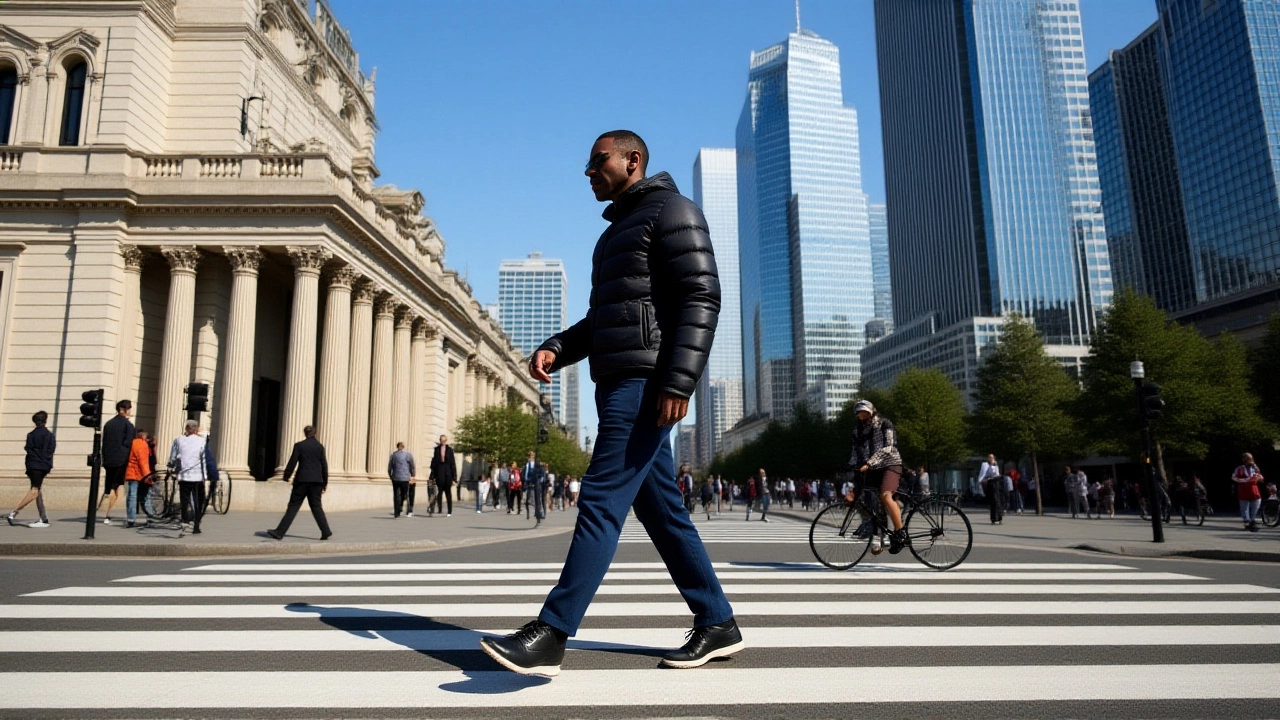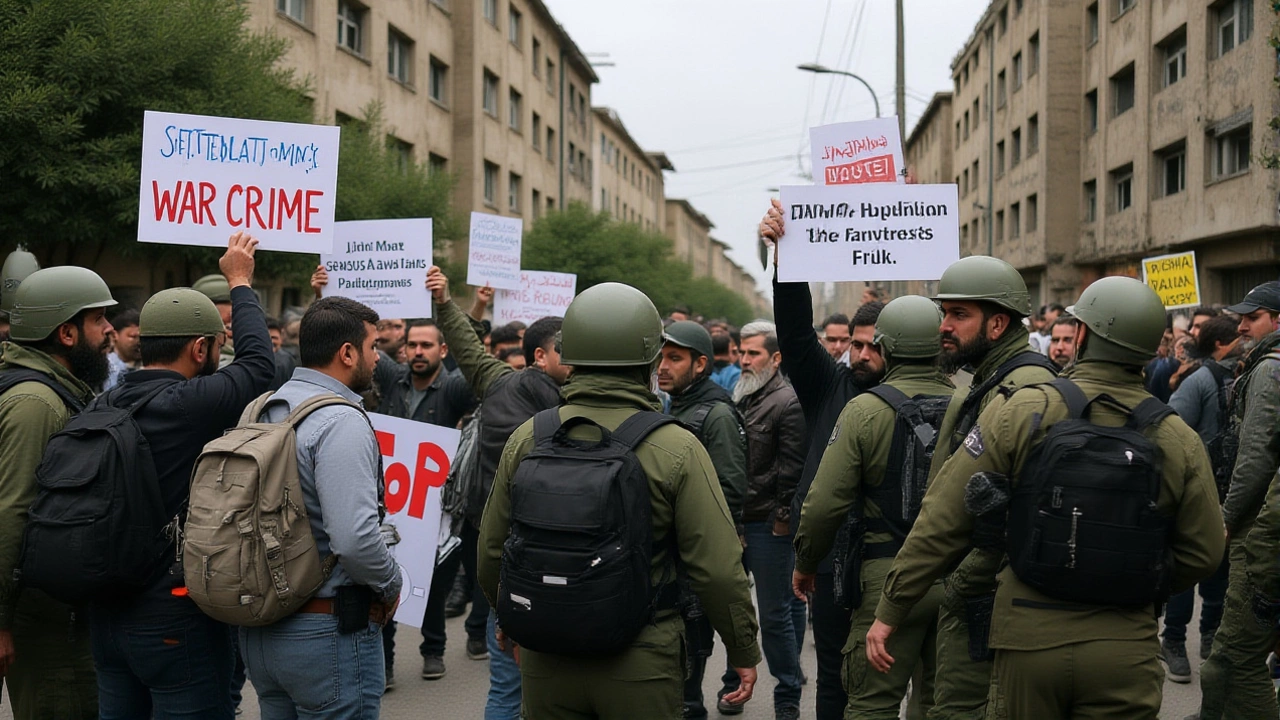When Benjamin Netanyahu announced plans for a full military takeover of Gaza in early 2025, few expected the global reckoning that followed. But by August, the fallout had become undeniable: Israel was losing its moral standing on the world stage, while recognition of a Palestinian state surged from diplomatic fringe to mainstream policy. The hunger crisis in Gaza, now described by UN agencies as "systemic starvation," has turned international opinion against a country once widely seen as a democratic ally. And the consequences aren’t just symbolic—they’re structural.
A Crisis of Legitimacy
It’s not just protests in Paris or street demonstrations in Jakarta. The numbers tell a starker story. A Pew Research Center survey of 24 countries in June 2025 found that in 20 of them, more than half the population held an unfavorable view of Israel. In Turkey, it was 93%. In Japan, 79%. In Australia, 74%. Even in traditional allies like Sweden and Spain, unfavorable views hovered near 75%. And confidence in Netanyahu? It’s collapsed. In Germany, France, and Indonesia, three-quarters of adults said they had little or no confidence in him. Some said none at all.
Inside Israel, the cracks are widening too. Only 44% of Israelis approve of their national leadership, according to Gallup News. Just 43% trust their own government. And in a historic low, 48% say they have no confidence in the judiciary—a direct result of Netanyahu’s pre-October 2023 judicial overhaul, which many Israelis saw as an erosion of democracy. Meanwhile, 58% of Israelis believe their country is "not too" or "not at all" respected globally. That’s up from 15% to 24% in just one year.
Legal Reckoning and Moral Isolation
The International Criminal Court didn’t wait for public opinion to catch up. In March 2025, it issued arrest warrants for Netanyahu and former defense minister Yoav Gallant on charges of war crimes and crimes against humanity. The move, while largely symbolic without extradition, sent a chilling signal: international law is no longer a bystander.
Human rights groups like Amnesty International and Human Rights Watch have echoed the ICC’s findings, citing evidence of indiscriminate bombardment, siege tactics that starve civilians, and the destruction of medical infrastructure. Genocide scholars, including those from Yale and Harvard, have published peer-reviewed analyses concluding that Israel’s actions meet the legal threshold for genocide under the UN Convention. Even David Grossman, Israel’s celebrated novelist, called the war "a moral failure that will haunt us for generations." Retired generals and intelligence officers—men and women who spent their careers defending Israel’s security—have publicly appealed to Donald Trump to pressure Netanyahu to end the war.

The Global Pivot: Palestinian Statehood Goes Mainstream
The most dramatic shift? The momentum behind Palestinian statehood. On September 15, 2025, France formally recognized a Palestinian state. Within days, the United Kingdom and Canada announced they would follow. Germany began drafting legislation to do the same. Even Australia, once among Israel’s most steadfast allies, signaled recognition was inevitable.
This isn’t just diplomacy—it’s a realignment. The Economist/YouGov poll from August 5, 2025, showed 84% of American voters favor an immediate ceasefire. Forty-five percent believe Israel is committing genocide. Only 31% disagree. And here’s the twist: those numbers aren’t confined to liberals. Among independents, 42% say Israel is committing genocide. Among moderates, it’s 39%. Support for Netanyahu? Just 27% of Americans back him.
America’s Fractured Consensus
The Brookings Institution reported that U.S. support for Israel has fallen to 43%—down from 62% just three years ago. The Chicago Council on Global Affairs found that Democrats’ positive feelings toward Israel dropped from 51% to 41%. Republicans held steady, but even their sympathy for Israelis slipped from 78% to 75%. Meanwhile, support for Palestinians among Democrats jumped 18 points in two years.
It’s playing out in town halls too. In Massachusetts’ 4th District, Representative Jake Auchincloss faced angry constituents demanding action on Gaza’s famine. His brief, technical responses—"We’re monitoring the situation," "Humanitarian aid is flowing"—were met with boos. One woman stood up and said, "My grandfather was Jewish. He fled pogroms. He’d be ashamed of what we’re doing now." The crowd cheered.

What Comes Next?
The path forward is unclear. Israel’s military still holds sway in Gaza, but its political capital is evaporating. The ICC warrants won’t lead to immediate arrests, but they’ll make Netanyahu’s international travel risky. Countries recognizing Palestine will likely move to upgrade diplomatic missions, cut military ties, and push for sanctions at the UN. The U.S. Congress may see more pressure to condition aid. And inside Israel, the protests aren’t fading—they’re growing.
What’s undeniable is this: the world no longer sees Israel as a victim. It sees a power acting with impunity. And when that perception hardens, alliances don’t just weaken—they fracture.
Frequently Asked Questions
How is the international community responding to Israel’s actions in Gaza?
Over 20 of 24 surveyed countries now have majority unfavorable views of Israel, with nations like Japan, Sweden, and Turkey exceeding 75% disapproval. The ICC has issued arrest warrants for Netanyahu and Yoav Gallant, while France, the UK, Canada, and Germany are moving toward recognizing Palestinian statehood. Many nations are also reviewing arms exports and aid packages tied to human rights compliance.
Why is public opinion shifting in the United States?
American support for Israel has dropped to 43%, with 84% favoring an immediate ceasefire. The shift is driven by graphic media coverage of civilian deaths, the scale of starvation in Gaza, and growing distrust in official narratives. Young voters, independents, and even moderate Republicans are increasingly aligning with humanitarian concerns over unconditional military support.
What impact does Palestinian statehood recognition have on diplomacy?
Recognition allows Palestine to join international bodies like the ICC and the World Health Organization, potentially enabling legal actions against Israel. It also pressures banks and corporations to divest from settlements. Countries that recognize Palestine may downgrade diplomatic ties with Israel or suspend joint military exercises—steps already being discussed in Brussels and Ottawa.
Are Israelis divided over Netanyahu’s policies?
Yes. Only 44% approve of the national leadership, and 48% lack confidence in the judiciary—a record low. Over 200 retired security officials have publicly called for an end to the war. Even within Netanyahu’s Likud party, backbenchers are quietly urging compromise. The 2023 judicial overhaul has left deep societal fractures, and the war has only widened them.
Could this lead to sanctions or arms embargoes against Israel?
Several EU nations are already reviewing arms exports. Germany paused a $1.2 billion submarine deal in June 2025 pending a human rights review. Canada has signaled it may halt future F-35 parts shipments. The U.S. Congress has seen over 20 bills introduced to condition aid on humanitarian access. While none have passed yet, the momentum is building—and so is public pressure on lawmakers.
What role does the ICC arrest warrant play?
The warrants don’t immediately imprison Netanyahu, but they make international travel risky. He can’t visit over 120 ICC member states without risking arrest. This isolates him diplomatically and signals to foreign leaders that cooperation with Israel carries legal risk. It also emboldens victims’ families to pursue cases in national courts under universal jurisdiction.
